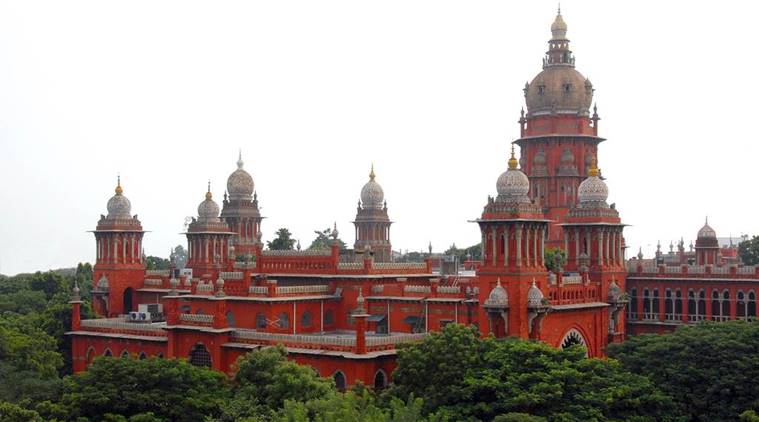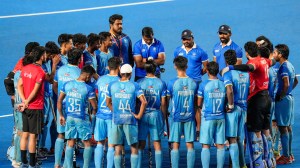While acquitting a young accused of sexual assault charges under the Protection of Children from Sexual Offences (POCSO) Act Friday, Madras High Court made two significant suggestions — that the age for the definition of a “child” be taken as 16 rather than 18, and that the Act account for the difference in age between the offender and the girl involved in consensual sex.

“… The definition of ‘Child’ under Section 2(d) of the POCSO Act can be redefined as 16 instead of 18. Any consensual sex after the age of 16 or bodily contact or allied acts can be excluded from the rigorous provisions of the POCSO Act and such sexual assault, if it is so defined can be tried under more liberal provision, which can be introduced in the Act itself and in order to distinguish the cases of teen age relationship after 16 years, from the cases of sexual assault on children below 16 years,” Justice V Parthiban ruled.
“The Act can be amended to the effect that the age of the offender ought not to be more than five years or so than the consensual victim girl of 16 years or more. So that the impressionable age of the victim girl cannot be taken advantage of by a person who is much older and crossed the age of presumable infatuation or innocence,” Justice V Parthiban observed, directing the government authorities to place the decision “before the competent authority and initiate appropriate steps to explore whether the suggestions made by this Court are acceptable to all stakeholders.”
While legal experts and child rights activists welcomed the redefinition of “child”, some of them called for further discussions on the suggestion for an amendment that would factor in the age difference.
Definition of child
Supreme Court advocate Vrinda Grover called for decriminalisation of consensual sex between those aged between 16 and 18. “This provision denies young persons falling in this age bracket consensual sexual agency, and subjects them to the control of families which motivated by casteist, communal or orthodox and regressive views lodge false criminal complaints,” she said.
Criminal lawyer and senior advocate Rebecca John said: “On the one hand, when the age of the juvenile in conflict with law was lowered from 18 to 16 (Juvenile Justice Act) in violation of all international conventions, the move was regressive. And on the other hand, study after study tells us, in the age group between 16-18, there is a lot of experimental consensual sexual acts that take place. What happens is that when these children are caught, or if parents find out, then in most of the cases, the parents of the girl lodge a complaint that it was non-consensual.”
Child rights expert and Delhi High Court advocate Anant Kumar Asthana observed that after the age of consent was raised to 18 years through the POCSO Act, 2012, “there has been a massive swell in incarceration of young people across the country, even in cases where sexual relation was outcome of a love affair or was consensual. Courts dealing with such cases had very little discretion left. The view of Madras High Court is a ray of hope that the government will now take steps to eliminate this unwarranted criminalisation of consensual or romantic sexual relations”.
Story continues below this ad
While agreeing that criminalisation of sex in this age group is unfair, former National Commission for Protection of Child Rights chairperson Dr Shantha Sinha said: “The issue of consent would have to be decided from the circumstances rather than putting the victim on the stand and asking her if she gave consent. You have to look at the amendments in a more nuanced way and not victimise the child further through this line of questioning.”
Professor Ved Kumari, dean of Delhi University’s law faculty, too felt consensual sex cannot be criminalised at an age when sexual exploration is common, but argued against singling out the boy. “In consensual sex both are offenders or both are victims. It has been my long-held position that either both need to be tried under the JJ Act or both should go to the CWC (Child Welfare Committee). Normally the boy is tried under JJ and the girl is sent to CWC. They are equal partners. How can the two be treated differently?” she said.
Age gap
Vrinda Grover said the suggestion on age gap should be discussed. “I agree with the principle that age difference should not be more than 4-5 years. This can be discussed and decided. It is followed in the UK. In the US also there are close-in-age exemptions, also called Romeo and Juliet laws,” she said.
Rebecca John, however, said, “I am not entirely sure about the age gap. Just because there is age gap, it cannot be criminalised. This is a very Indian and patriarchal concept. If an older man uses his power and position to exploit a younger woman, I would look into that difference. Simply because there is an age gap, I will not necessarily treat it as a crime. I would look at it from the prism of power relationship and hierarchies and judge whether the victim was exploited or not.”
Story continues below this ad
Asthana said, “there can always be a discussion on what should be the age gap between alleged offender and victim”. But what is more important, he said, is “to acknowledge that the law at present on this subject is very very harsh and does not leave any scope for details and dynamics of a relationship to be taken into account by courts.”
Delhi University’s Kumari noted that “an age gap provision under which consensual sex with a person just a little older is there in many jurisdictions”. “That prevents a much older person from exploiting the minor because crushes are also normal at this age,” she said.

 Madras HC last week suggested amendments to POCSO Act.
Madras HC last week suggested amendments to POCSO Act.





































